Interactive Tables and Charts
Data Economy
Proportion of governments that increased space spending, 2018-2023
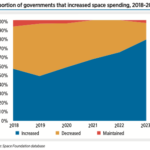
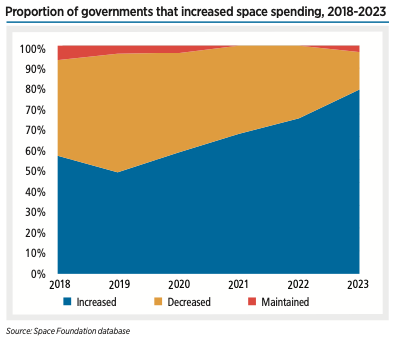
Preliminary data shows that 81% of governments with space programs increased spending in 2023.
NASA share of U.S. federal budget, 1959-2025
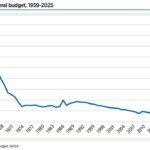
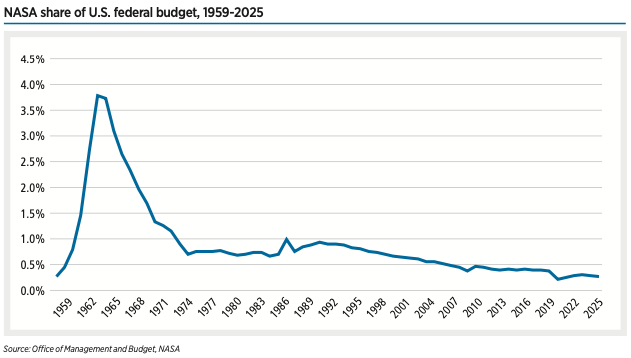
The overall Pentagon budget proposal for 2025 is $850 billion, $8 billion more than its 2024 request.
Top 3 commercial space sectors, 2015-2022
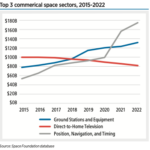
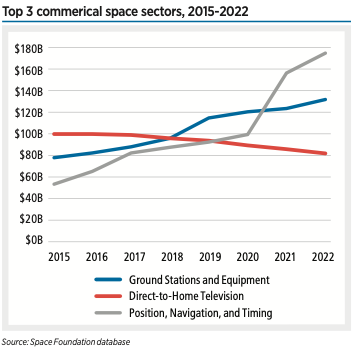
Commercial revenues continue to make up the majority (78%) of the global space economy. The top three commercial space sectors — ground stations, direct-to-home television, and position, navigation, and timing — totaled $373 billion in 2022.
Space spending by region, 2022
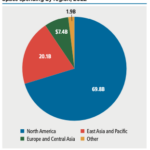
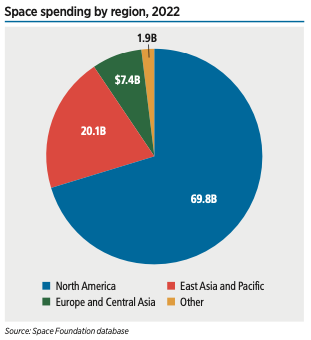 This interactive chart shows changes made in the accompanying table. Use the tools just above the table for sorting, advanced filtering, and other options, these actions will reflect on the…
This interactive chart shows changes made in the accompanying table. Use the tools just above the table for sorting, advanced filtering, and other options, these actions will reflect on the… Japanese Government Space Spending, 2013-2023
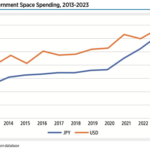
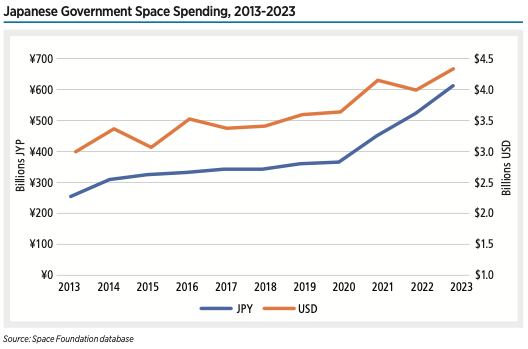
Japan’s space spending spans seven ministries and totaled ¥612 billion (UD$4.3 billion) in 2023. This budget has grown 68% since 2020 as the nation expands its civil and military space programs. The Ministry of Education, Culture, Sports, Science, and Technology (MEXT) — which houses JAXA — typically receives the majority of space-related funding.
Planned Scottish Space Workforce, 2023-2030
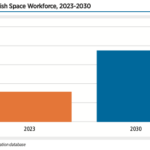
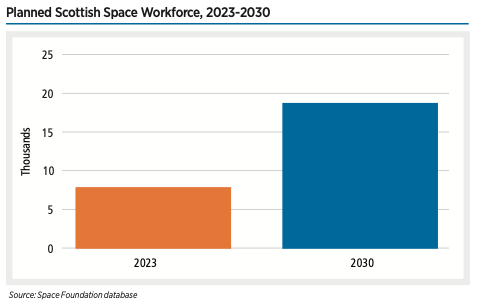
Scotland increasingly sees its future in orbit, with the Scottish Parliament planning to more than double its space workforce to 20,000 workers by 2030.
Lunar-focused Company Performance
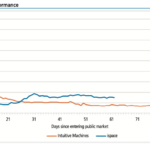
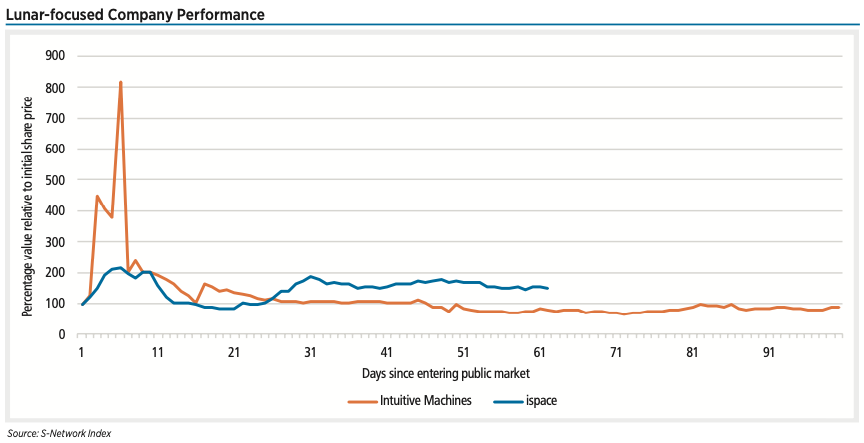
The two new lunar-focused companies that entered the market in the first half of 2023, Intuitive Machines and ispace, are showing a relative degree of stability in their share prices after some initial volatility in the early days.
S-Network Space Index vs. Benchmark Indexes, H1 2023
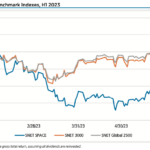
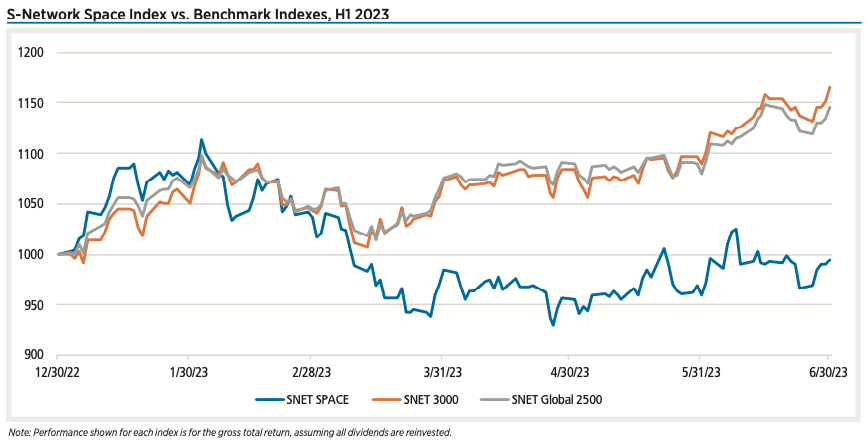
In the first half of 2023, the S-Network Space Index (SNET SPACE) underperformed other benchmark indexes, declining 0.6%. This compares to a 17% increase for the S-Network U.S. Equity 3000 Index (SNET 3000), which tracks the 3,000 largest (by market capitalization) U.S. stocks.
Non-NASA U.S. Civil Space Spending by Agency, 2021-2023
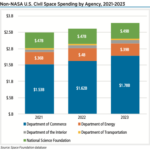
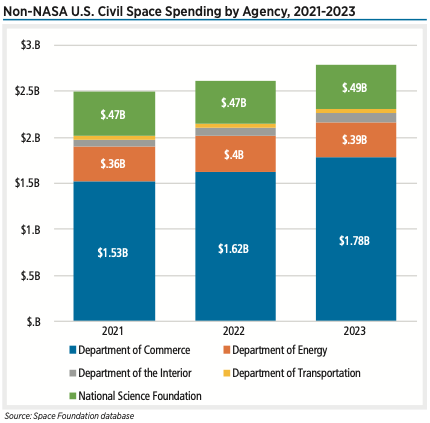
The Department of Defense’s unclassified space spending totaled $17.1 billion in 2022. Space Foundation also estimates total defense space spending, including classified and unclassified budgets for all military branches and intelligence agencies. This estimate reached $42.9 billion last year, a 21% increase year-over-year.
ESA Member Contributions by Type, 2022
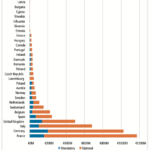
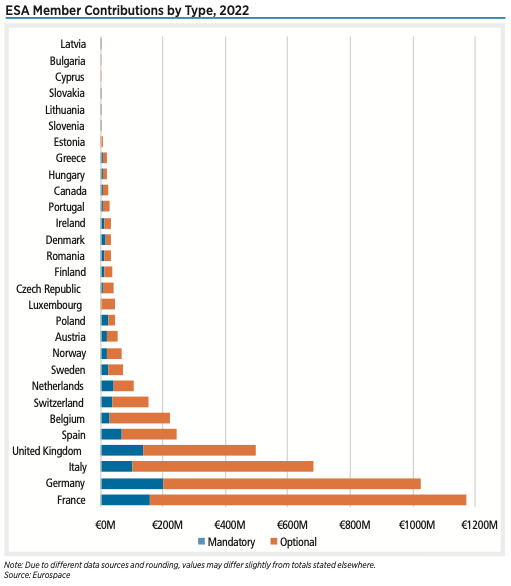
Member state contributions comprised 70% of ESA funding last year. France contributed the most, €1.2 billion. Germany came in second with €1 billion, and Italy was third with €680 million. These top three member states were responsible for 42% of the total budget. The Netherlands increased the amount it sent ESA by 13% in 2022 to just shy of €100 million, while Canada slashed its contribution in half.